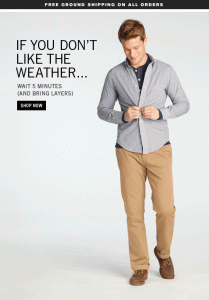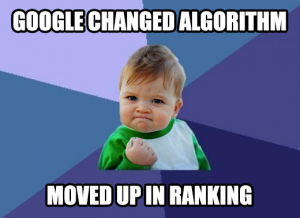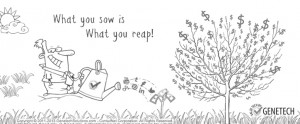The online marketing industry is evolving with each passing year. Earlier, online marketers focused more on search engines for the promotion of their marketing content. Back in the previous decade, more focus was given on keyword-based website content, optimized blog posts and bookmarking techniques to increase rankings and to come into the limelight. Link building techniques were used to build traffic toward business websites. This included making a list of websites linking to your most challenging rival and attempting to submit your link in each directory, platform, etc., or you would try to discover a powerful blogger in your niche and send out an email asking him to buy a sponsored review.
Now these trends are a thing of the past. The need to employ unique, user friendly and engaging marketing techniques gave birth to visual assets. Today, marketers need to keep coming up with innovative ideas and create marketing plans according to real-time customer insights through visuals.
Related Class: Content Storytelling Rules for the Digital Marketer
Different Genres of Visual Assets
Let's explore the different kinds of visuals that are currently being used by marketers all over the world to promote their marketing campaigns and let's see how they are implemented into content marketing.
Photos
Everybody has a camera in their pocket today. With the increase in photo-centric networking forums such as Pinterest, Facebook, Tumblr and Instagram, photos have become a universal language for the Internet. Articles containing images receive 94% more viewership, and 60% of customers are apt to interact with a business that shows an image to support its credibility. Pinterest has grown exceptionally, surpassing both Tumblr and Flickr in February 2012 with 23.7 million unique American visitors. That's enough information to make photos an important visual asset for online marketing today.
Memes
A meme is a term coined by Richard Dawkins in the year 1976 that is short for “mimem,” a Greek word meaning “imitated thing.” The history of the meme dates back to the 19th century when Harry Whittier Frees, an American photographer, captured pictures of his pet cats and transformed them into greeting cards by adding texts.
Infographics
There are many popular memes on the Internet, one being the Success Kid. Generally used to announce triumphs over everyday problems, the Success Kid is extremely popular among Internet users. Memes can generate user interaction and help your consumers engage with each other to spread, discuss and spread your message on the Internet.
For creating brand awareness and social buzz, the use of infographics has become a must-include feature of every marketing campaign. Mainly used in the 1970's to present information in a clear and understandable manner, infographics are used heavily by today's businesses to get their brand message in front of millions of consumers. It is estimated that from 2011 to 2013, almost 110 infographics were published on the Internet every day! Infographics chalk out useful information, list several functions and tell success stories with comprehensible graphs, facts and figures. Infographics are also used as a popular marketing technique to have a long-lasting impact on the viewers. Here are two such examples of creatively designed infographics: http://visual.ly/how-did-fishmonger-content-go-viral and http://www.genetechsolutions.
Illustrations
When marketers shifted from print media to digital media, they brought some old-school elements into the content marketing realm, such as illustrations. At one time, the role of illustrations was only limited to aid in the sale of products. Today, they are an important subdivision of content marketing on the Internet.
As blogging began to emerge in 1998, many personal and professional blogs were accompanied by illustrations. Marketers have began to unfold the potential of these drawings and are not using them to support their content. While Neil Patel uses eye-catchy illustrations in his infographic “How to Double Your Traffic in 30 days,” some companies include illustrations to define their work processes or brand features and usability. You can also use them as images to give a creative look to your blogs as shown below.
Videos
Probably the best visual asset to arrive yet, a promotional video. It’s probably hard to imagine your business without a video now. Marc Fleishhacker, a marketing guru for 30 years and head of products for the enterprise division of Ebay tells us that a promotional video in your email marketing campaign can boost customer interaction by 200 to 300 percent. In the past, we have observed many viral videos explode such as the fishmonger's song, Charlie bit my finger, Obama Girl and the recent Gangnam Style. All these videos forced online marketers to brainstorm different ideas as to how to include small videos promoting a brand image as well as providing a chance to get their campaign viral.
The year 2013 witnessed 77 percent of the international market watching videos of some kind on the Internet. This means that in the future, marketing content without a video will have a lower chance of connecting with the audiences.
Animated GIFs
The GIF specification was first brought to attention by CompuServe in 1987. Earlier, GIFs were merely limited to flames and waving flags. In the last decade, GIF's began to lose their popularity after the division between Web 1.0 and Web 2.0. It was only years after the evolution of Web 2.0 that marketers began to realize that they could use animated GIFs in a lot of creative ways and include them in their content, such as blogs and on social networks like MySpace, Tumblr and Reddit. While it has been around for 25 years, only recently has the animated GIF hit the online marketing industry with a powerful comeback. Usually incorporated in email marketing, classy animated images can do wonders to strengthen your brand when placed within the right kind of content.
Also, many popular brands use animated GIFs to showcase their products, like the one shown below.

Useful Resources to Build Your Own Memes, Infographics and Quote Graphics
It is an interesting fact that 65 percent of people are visual learners. Visual information is processed 60,000 times faster than information presented in the form of text.
There are many resources for today's marketers and worldwide users to design and showcase their memes, infographics and quote graphics.
- Popular websites for creating and displaying memes are Know your Meme, Quick Meme and Meme Center.
For creating and showcasing infographics, the most popular sites are Visual.ly, PiktoChart and Infogr.am. - For pinning websites, images, text and quotes, you can benefit from these user-friendly websites: PinWords, Pinstamatic and Quozio.
Breakdown the basics in Online Marketing Institute's class, The Anatomy of Great Digital Visual Storytelling. You will learn how to implement strong content that uses visual storytelling on social platforms such as Pinterest, Instagram, Facebook, and Twitter to engage the right audience in the right way. View this class and many more, today!
Author Bio
Amber Alvi is a zealous content writer and blogger at Genetech Solutions, a prominent iPhone Application Development Firm having specialty in Web Design/Development, Mobile Apps, Virtual Staffing and SEO. Checkout more of her work on Genetech’s Blog.

